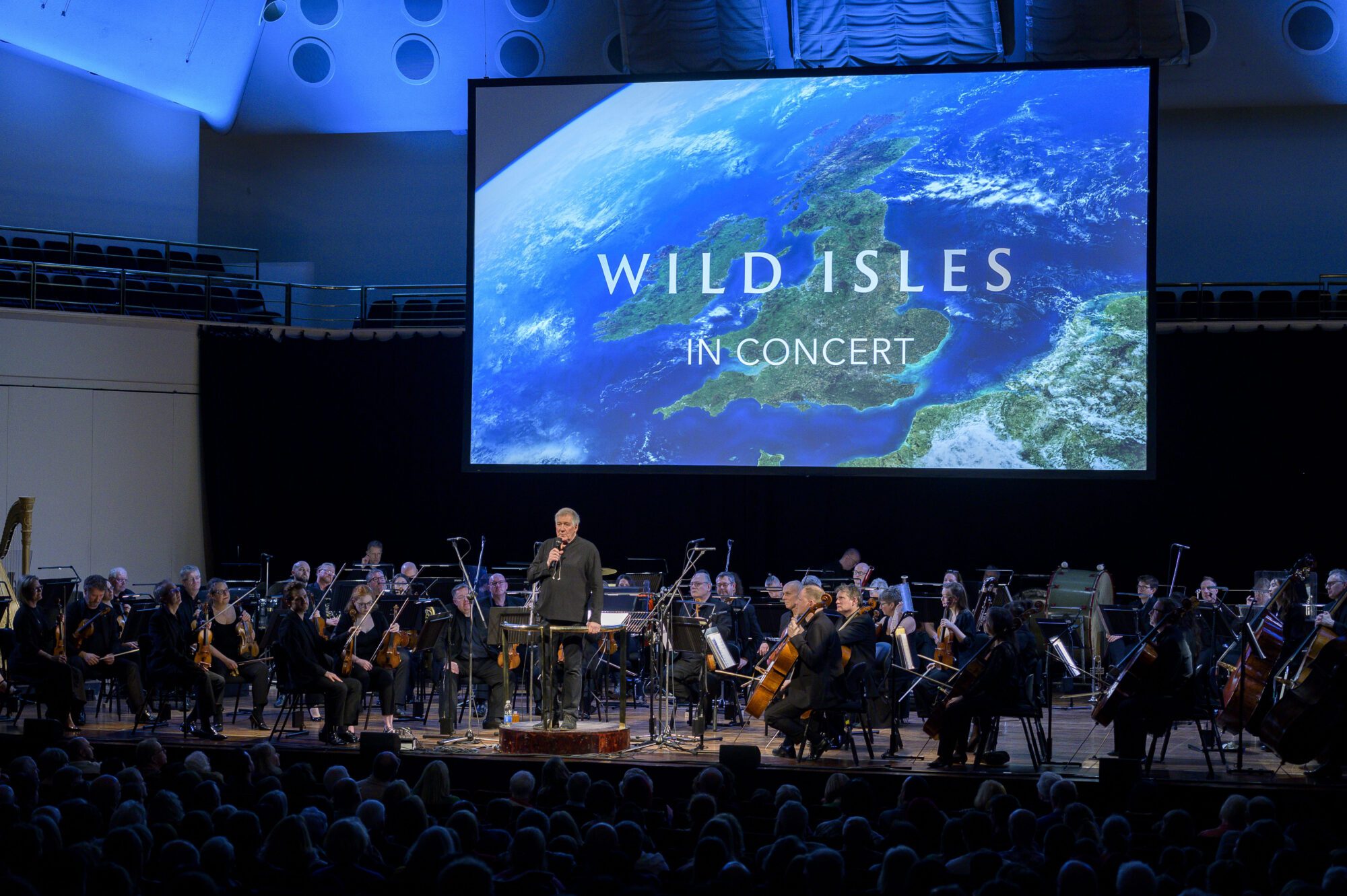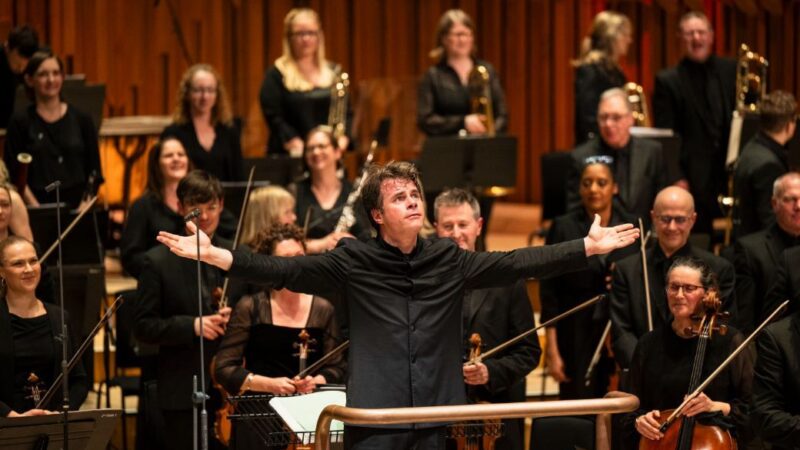Barbican Hall
As a confirmed Londoner, my experience of British wildlife is pretty drab, with flashes of bushy vermilion tails disappearing into my bins. Elsewhere on these storied Isles, I admit to wonder, but rarely is it the focus of the nature industry’s fisheyed lens.
The BBC series, headed by our lord and saviour Sir Attenborough, has other talents present as well. Namely, underneath David’s bumbling tones and the diving, gambling, or trotting creatures lies the exquisite scores of George Fenton. Fenton is an accomplished composer, having worked on over 200 projects from Blue Planet to Dangerous Liaisons, an artist in music, a painter in string and horn.
Cleverly clocking the success of nature series, The Blue Planet in Concert came to The Barbican in 2001. Showcasing Fenton’s music in all its splendour, offering a different angle to experience the natural world. Now we’re at it again, the BBC Symphony Orchestra marches on like a murder of crows, Fenton beams out at us, and we turn the focus to our own rocky coastline and rolling fields.
A loveable narrator, kindly biology or music teacher Fenton keeping things short and sweet to allow the music to shine. Some jokes are slipped tentatively in, with little behind-the-scenes peaks at the composing process. Kicking things off with grasslands and woodland, bumblebees buzz to a flurry of strings and clarinets, yew trees explode with pollen in bursts of notation, both showing the comedic value of a classical score. Hares wide-eyed and frantic clash and cavort in their mating ritual and hen harriers soar to a languid then sharp stab of cello, tossing voles to one another in an almost sweet co-parenting mid-flight dance.
Where would British wildlife be without the majestic stag? Hooting like a dinosaur across the Scottish highlands. Clashing drums heighten the violence of the rut, as they thrash and splash through a pool in this gladiatorial match. My heart is in my mouth, such a funny reaction to something that was filmed in 2023. I wonder how it will turn out.
Testament to the innovation of the series, the Wood Wide Web (the net of mushroom fibres between trees) is visualised with animation precisely explaining the exchange of minerals and information. As we descend underground Fenton’s score deepens and softness, then fires up with zaps like synapses enlightened with life. The big black eyes of a hazel doormouse blink, as we follow it’s journey to the top of an ancient oak bringing the focus to the minute, and the music crafts the narrative, building to an almost tragic crescendo. A small story given the Hollywood treatment. Fenton explains the 800-year lifespan of the oak and highlights the fact that we have 60% of them right here in Blighty. Again the music allows for a James Bond-style adventure comedy for a red squirrel wanting to evade a rival for the best hunting ground. Crested grebes swing into a weed dance, flicking their plumage like me after a fresh perm. The stylised 18th-century court music bringing out the grace and slight ludicrousness of the performance. Peregrine falcons plummet down with the violins stabbing away, sawing the air as the bird’s razor flight ends in dinner.
The music crafts menace so well, as we nibble our nails raw as killer whales stalk the inlets of The Shetland Isles for seals. Revulsion also when poor baby toads must cross a leach-infected patch of mudflats, in slurping loops of sound. Shot from their perspective the worms seem Dune size, writhing through the sludge. Titled “The day that went horribly wrong” Fenton explains it’s possibly the most “disgusting” thing he’s ever had to write music for.
Sea floods the massive screen, and the music reflects perfectly that swish of motion and unfathomable space. A harp leads the charge for a section of up close microbic kaleidoscopic phytoplankton, and a cuttlefish being born is heralded by the pealing of bells. Spiralling sea cucumbers use a skirt of membrane to fly to new feedings ground and salmon charge up rivers to cymbals and horns of adventure.
Although the commentary is missing, we end with a tribute from Sir David and a poignant reminder of the fragile and fragmentary state of nature here in the UK. The serious didactic message is rather blurred by a royal pigeon squadron encore, celebrating the humble bird’s war effort and adaptability, a flash of rule Britannia, leaving a warm feeling nevertheless. Proving that the natural world is all around us, even in our concrete woodlands, and that it’s up to us to protect it for future generations.
You have sadly missed this one night spectacle but click HERE for more Barbican-based delights!



